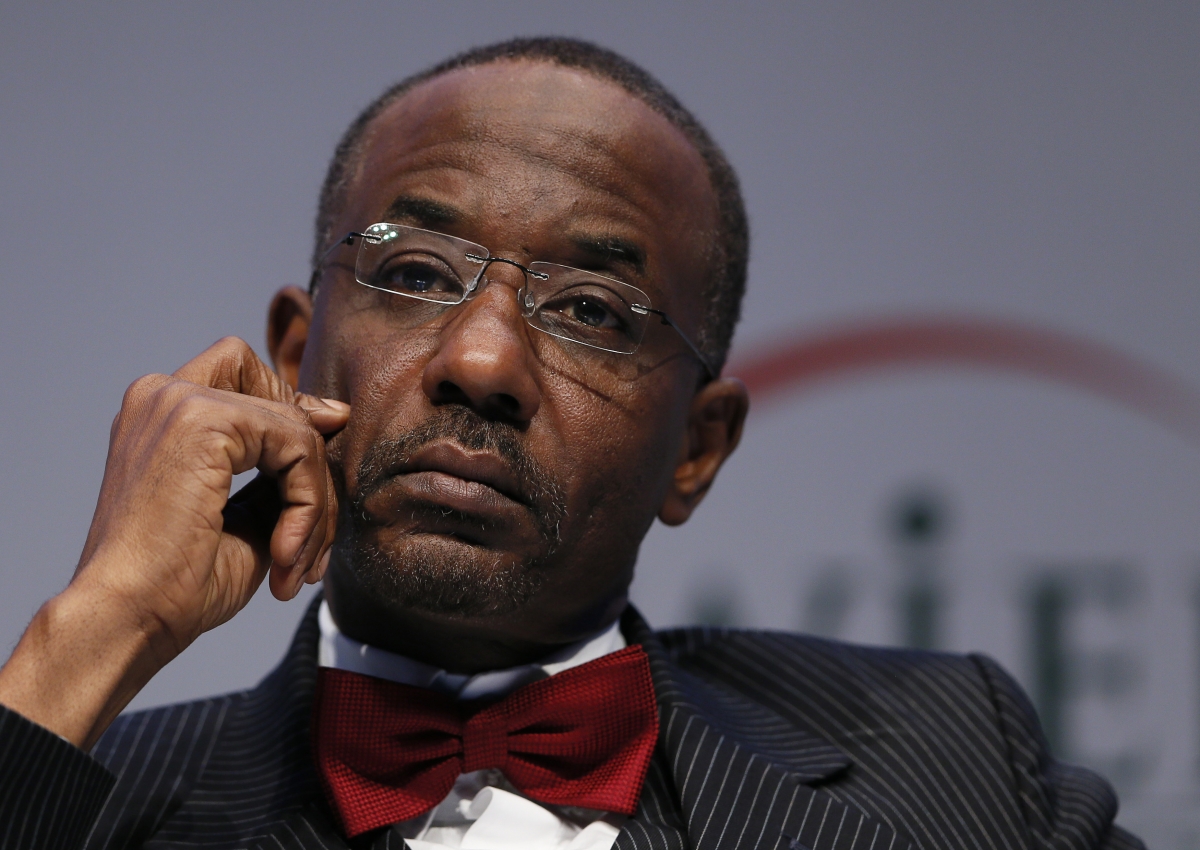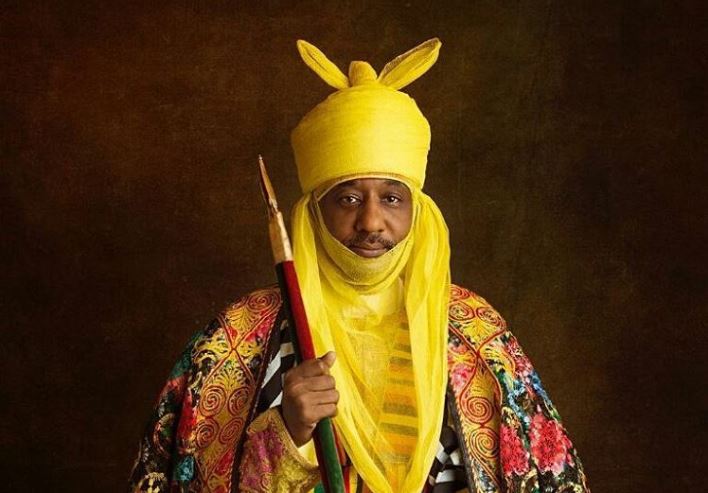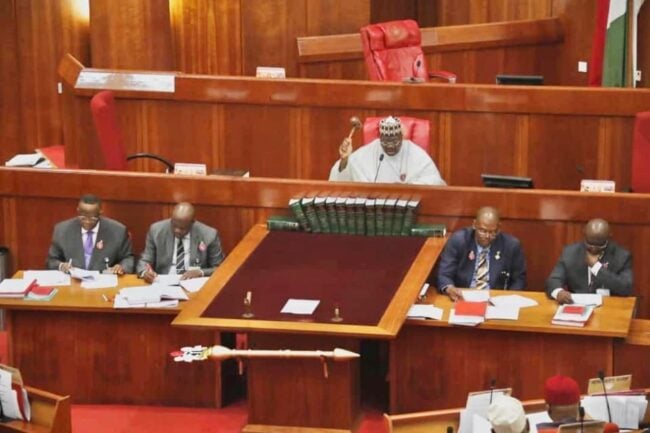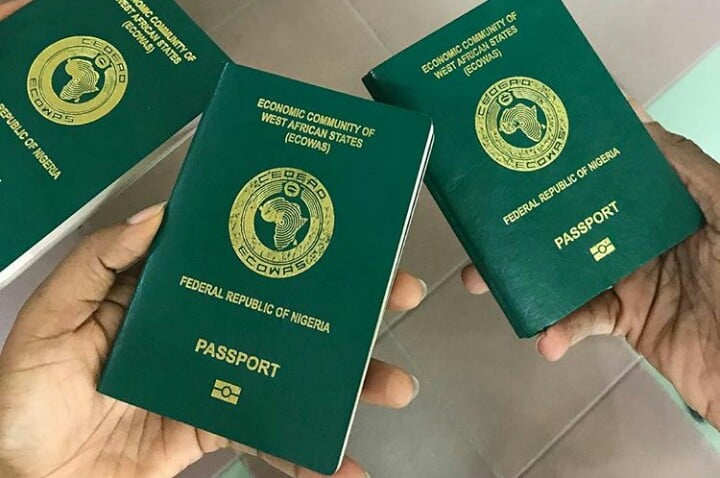It was the legendary author Dan Brown who said: “We all fear what we do not understand.” I love to fear nothing but God, hence, I try to understand everything and everyone — it’s an ongoing lifelong quest. And this is why you find me reading, learning and following controversially successful figures. For over 10 years, I have followed Tunde Bakare, Leke Alder, Martin Luther King, Ajibola Ige, Pius Adesanmi, Nnamdi Azikiwe, Ibukun Awosika, Malcolm X, Mary Fisher, and the subject of this diary; Muhammad Sanusi II. And many others.
My first awareness of Sanusi was in 2009/2010, while I was a member of the Mellanby Hall Press Organisation (MHPO), University of Ibadan. We had to report the banking crisis and reforms from newspapers, and I had somehow gotten to know this man was the governor of the Central Bank of Nigeria (CBN). It was passive awareness and reporting.
In December 2011, I wrote a report — titled “Nigerian women and the honorary notes” — arguing that more women should be put on the naira note. It was published by Sahara Reporters. A few weeks later, the nation started talking about this possibility. In a few months, Sanusi was pushing for a N5,000 note that would feature the faces of Margaret Ekpo, Hajia Gambo Sawaba, and Funmilayo Kuti — three of the women I mentioned in my article.
For a young 300 level student, this man had made my month. It did not matter if it was mere coincidence or if he indeed read my article, but the fact that the CBN was considering the women I put forward was everything to me. Oh, I loved every bit of the debate. Despite stiff opposition, Sanusi was bent on putting the faces of women on the naira note. As history records, the N5,000 note never happened, but my love for Sanusi was established.
Advertisement
Anything Sanusi, I read and reported. But I never could understand the man; how does a “60kg man” have so much weight? When he speaks about ancient greek philosophy, Arabic ideologies, first world war, economics, Sharia, just anything — he understood them so well and could explain to a child. It always left me with the feeling of “Mayowa, how can a man know so much, and you know so little?”
ENTER FUEL SUBSIDY DEBATE

Before my love for Sanusi was established, I had found common grounds with him. In November 2011, I wrote an article titled “The Positives Of Oil Subsidy Removal In Nigeria“. I argued, at the time, that the “removal of subsidy from black gold in Nigeria is an awful tasting medicine, but the Nigerian patient is in dire need of it”. I didn’t make the best arguments but as much as I understood, I knew the subsidy was bad for the health of the economy. At the time, it was an unpopular opinion.
The following month, there was a subsidy debate led by Isa Funtau (same Isa Funtua), moderated by Nduka Obagbeina of THISDAY Newspapers. At that public debate, Sanusi brilliantly held the position that fuel subsidy be removed. His explanation was brilliant as usual but largely unpopular. Here, I find myself holding the same opinions with the CBN governor. As much as I felt he was just doing it to keep his job, a tiny part of me felt this controversial man who sacked the directors of four too-big-to-fail-banks really doesn’t care about being unpopular.
Advertisement
By 2012, Goodluck Jonathan prematurely removed the fuel subsidy. Nigerians took to the streets and fought the decision. I argued from the comfort of my room at the University of Ibadan, that it was a good move. I prayed Jonathan stood his ground, but he couldn’t. With the benefit of hindsight, half measures have proven to be worse than no measures. Yoruba would say “patapata la n f’oju, oju a foofotan ija ni dale” — roughly translated as; be completely blind if you wish to be blind, being half blind does more harm than good. I was for total removal of subsidy as was this man, and as history teaches, partial removal has done more harm than good.
FIGHTING THE NORTHERN ELITE
Becoming a fulltime journalist in August 2014, I have followed and reported Sanusi actively. Then 2017 happened: Sanusi was invited for the Mo Ibrahim Governance Weekend in Morocco. He was put on the very first session, where he was asked to speak on “the appeal of violent extremism and migrations”. I keenly watched Sanusi make a case for the girl child education, modern interpretation of Islam, and the lack of ideology by Boko Haram.
For every word Sanusi said, he put his spiky shoes on the toes of hundreds and thousands of people who make up the northern elite. Two people stood out; Abdulaziz Yari, the governor of Zamfara state at the time, and Abdullahi Ganduje, the governor of Kano. Sanusi said Sharia law was introduced in Zamfara in 1999, only for Zamfara to become the poorest state in the country. While this salvo was not meant for Yari, the governor took it up and made many comments about the Sanusi.
Advertisement
For Ganduje, Sanusi’s crime was that he called out the governor for seeking a $2 billion loan from China to build a light rail. Aliko Dangote sat in the audience that day, visibly worried about the emir’s salvo. But you don’t tell a Sanusi not to speak “the truth”. And so the crisis began — or continued. He said politicians were politically appropriating religion — via Sharia — to get political power. He asked Nigerian Muslims not to necessarily see Iran and Saudi Arabia as role models but look more towards how Morocco and Malaysia have interpreted Islam. Sanusi got lots and lots of ovation for his very intelligent and candid talk. But that was exactly what his “enemies” did not want to see.
SANUSI’S PERCEIVED HYPOCRISY

You must have heard it before “Sanusi is just a hypocrite”. His crimes: “he marries four wives and preaches against polygamy. He had power as CBN governor and as emir, what did he do to help the situation in the north. He’s nepotic, while at CBN, he was simply employing his own people”. In summary, Sanusi is accused of not practicing what he preaches.
One of the major voices for this “Sanusi is just a hypocrite” narrative is Yari, who in 2017 said fornication was the cause of meningitis. Sanusi opposed his position, and he concluded by saying Sanusi was equating God to science. Just like Yari, many of those who hold this position have missed Sanusi’s point. As a Christian for example, my faith and principles do not support more than one wife, but I won’t fault a man for having 10 wives, as long as his wives and children do not become a burden and a nuisance to Nigeria. This is at the heart of Sanusi’s anti-polygyny message. He is not asking Yari or any other northern elite not to marry 10 wives, he’s simply saying if you do not have the capacity to take care of 27 children, don’t bring them into the world.
For those who say Sanusi is corrupt yet he preaches integrity, look at the pattern; he called out corruption under Jonathan and was threatened to back down, but he did not. As we would later find out, Sanusi had privately written former president Goodluck Jonathan about the missing billions in 2013, but the president did nothing. Rather, Jonathan asked him to resign for “leaking the letter”. We would later find out, Rotimi Amaechi, with his deep ties in government and willingness to get Jonathan out, eventually got the letter (not from Sanusi) and shared it with former president Olusegun Obasanjo, who wrote to the public and the serving president.
Advertisement
Sanusi was booted out for failing to “cooperate” with Jonathan on the missing billions and touching Madam untouchable who is hiding from Nigerian jail in the UK. Speaking of untouchables, before 2009, it was unthinkable to sack the directors of four major banks in a country like Nigeria, littered with vested interests, but Sanusi did.
Yari called on Sanusi to respect himself, emulate his predecessors and “to either practice what he preaches or forever keep his peace”. Yari advised Sanusi not to “ride a Rolls Royce in the face of palpable poverty“. As a journalist and fan of the emir, I was worried that an emir in one of the poorest cities in Nigeria would get two Rolls Royce, but what I found was (in Yari’s voice) was Sanusi “emulating his predecessors”.
Advertisement
Insiders told TheCable back in 2017 that “Sanusi’s white Rolls Royce was given to him by an old friend Kola Kareem. The black other was given by another old friend, who was his classmate at ABU in 1977, Bola Shagaya.” These royal gifts are not a new culture, Sanusi’s predecessor, Ado Bayero, got limos in royal gifts from Aminu Dantata, Isiaka Rabiu, Dehinde Fernandez and Sani Abacha. Should Sanusi have followed his predecessors in this line? Up for debate.
At some point, the likes of Dangote brokered peace with Sanusi and his “co-occupants” (apologies to Yari) of the northern elite. Sanusi was quiet for a while, avoiding interviews and further conversations on the economy, but you can’t tame a lion. The Sanusi in Sanusi had to show up again, and this time, ready to lose everything.
Advertisement
Do I mean I see no fault in Sanusi? No, I believe Sanusi is flawed in more ways than one, and as a journalist who has reported on him based on an insider’s perspective, I have probably seen more than the average Nigerian. But someday, after I get responses on my questions about the flaws of the revered economist, I’d make public my informed judgment on the matters that bother me.
SANUSI’S LEGACY IN AWE
Advertisement
Speaking at the United Nations General Assembly in 2019, Sanusi recommended to President Muhammadu Buhari and the northern elite (especially governors) that the best way to achieve the SDGs was to simply educate the girl child. Sanusi shared what he has come to realise that you don’t preach to a man who wants to marry a third wife — just educate the girl he wants to marry.
As time and chance would have it, Sanusi ruffled too many feathers and was eventually deposed — an act he and his daughter had predicted long ago. He was banished to Nasarawa, coincidentally to the state of one of the governors who sat in New York to listen to Sanusi ask northern governors to educate young girls.
Having reported Sanusi for these many years, going to Awe was an awesome opportunity to further understand the workings of this man’s mind. Travelling nearly nine hours from Lagos to Awe gave me the opportunity to reflect over who Sanusi really was; his ideologies, his life, his philosophy, his interpretation of Islam, his economic policies, his political life — but I still could not figure out the enigma. I doubt if anyone truly can — at least not from a distance.
Reporting from Awe, it was easy to get carried away by the “news”, the politics, the entire illogical and archaic culture of banishment. But rather than get carried away, I went looking for human development indices, the kind Sanusi would speak so eloquently about, and what I found was awful. The major government secondary school in Awe was not in class session when we visited at 11:30am. The female hostel caught fire in 2018 and has not been fixed to date. Education is hurting in Awe.
As for healthcare, the town has only two doctors to 200,000 people and lacks basic equipment for modern medical care. See the full report here and in the video above.
Following his preaching at the Central Mosque Awe on Friday, there were rumours on social media that the former emir plans to build a mosque in Awe. My first response to that is “fake news” because the Sanusi I know would build a school before he builds a mosque. But in the event that this “Mosque-building gesture” is true, especially considering that Sanusi was not afforded the luxury of seeing schools and hospitals in Awe, I’d say schools also need to be fixed, hospitals need to be equipped, by him or by his influence. That I believe would be a lasting legacy for his time as Awe.
You can reach me on Facebook, Instagram, and Twitter @OluwamayowaTJ
1 comments








Great report